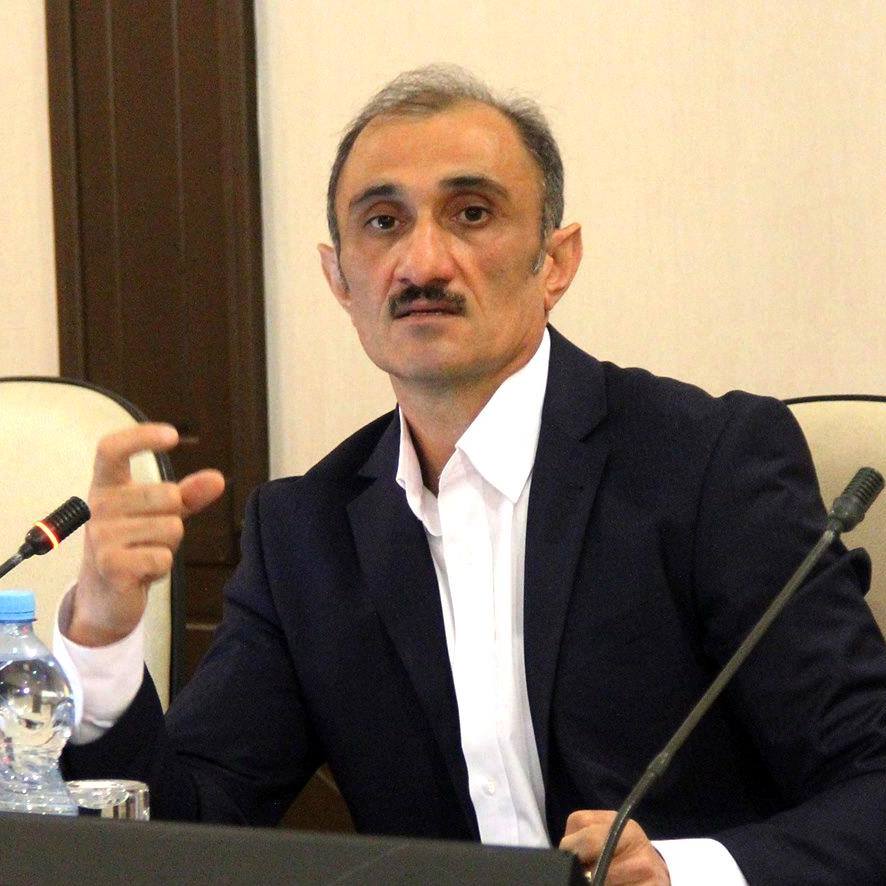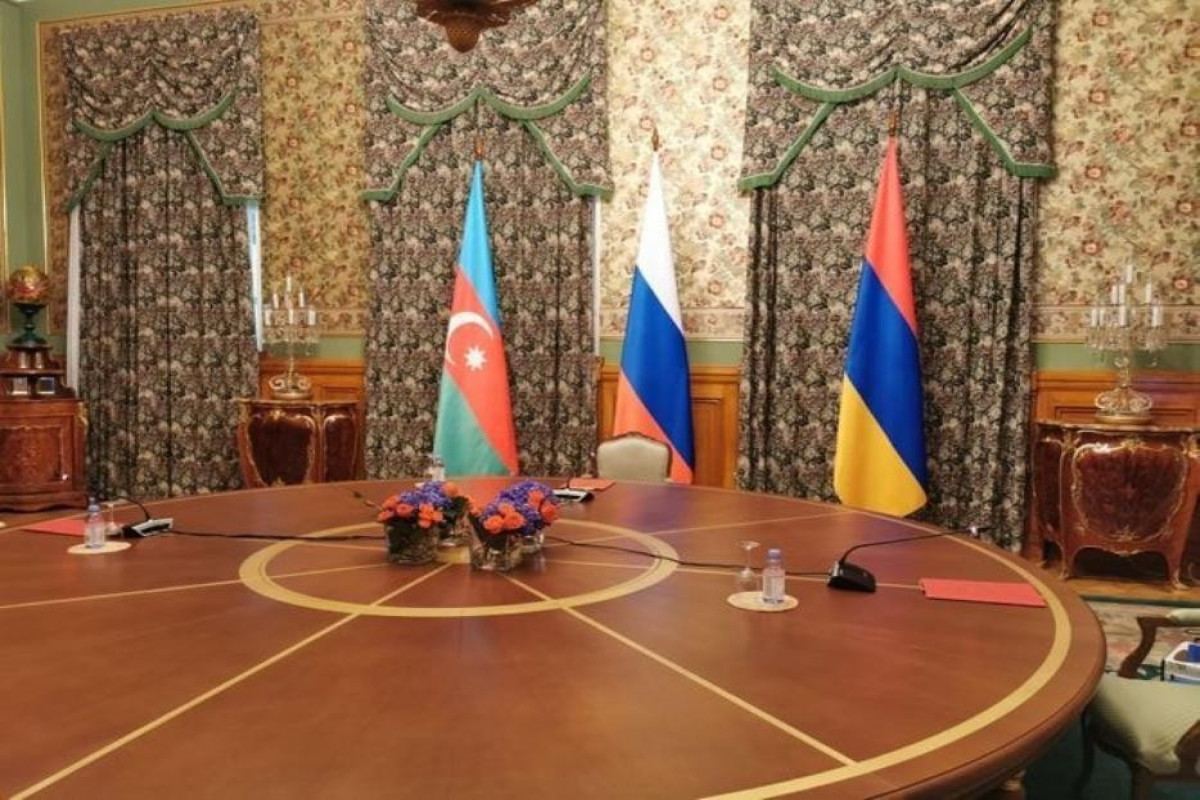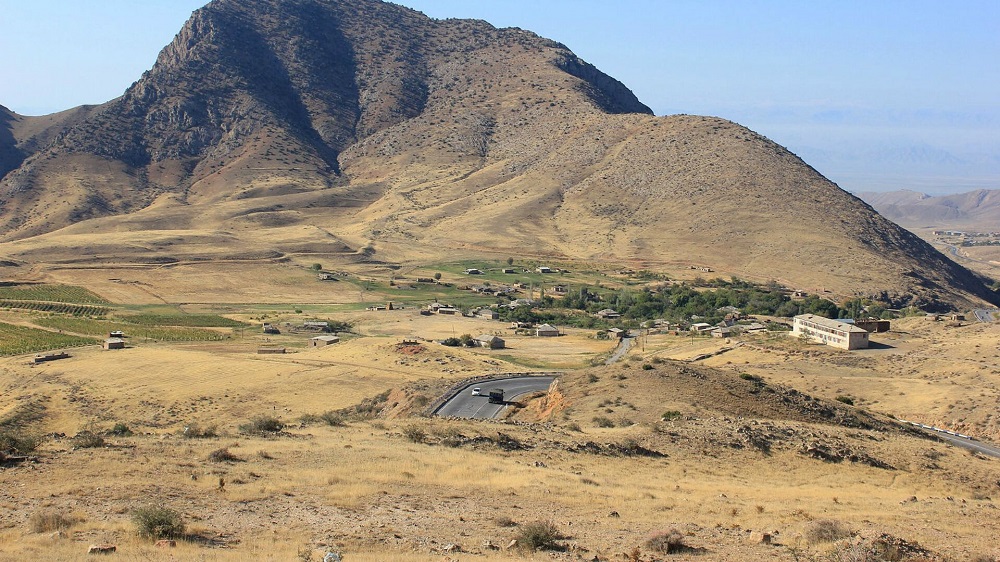April 5 expectations: Who is at risk from Brussels meeting? Baku commentary
The meeting in Brussels of Pashinyan, Leyen, and Blinken
On April 5th, according to Armenpress, a meeting will take place in Brussels between Armenian prime minister Nikol Pashinyan, European Commission president Ursula von der Leyen, and US Secretary of State Antony Blinken. This was announced by Armenian Security Council Secretary Armen Grigoryan.
“The joint meeting of president von der Leyen, prime minister Pashinyan, and secretary Blinken is scheduled for April 5th in Brussels, where they plan to discuss ways to promote trilateral cooperation that will contribute to Armenia’s development,” he said.
- “Russia abandoned us at the most critical moment,” said the speaker of the Armenian Parliament
- “There are no Armenian prisoners of war in Azerbaijan.” A view from Baku
- “In Armenia, they say one thing but do another.” Comment from Baku

Azerbaijani military-political analyst Asaf Guliev analyzed the expectations of all regional actors regarding this meeting. JAMnews presents his article:
“Armenia seeks security guarantees. With this aim, a conference will be held jointly with the United States and the European Union in Brussels on April 5. It would be inappropriate to expect anything serious or revolutionary at this conference.
In reality, the goal of Armenia’s search for security and the meeting scheduled for April 5 is clear: official Yerevan wants to break Armenia free from Russia’s grasp. This is desired by both the European Union and the United States. By formal logic, Azerbaijan should be the most serious actor today not interested in this. The reason is very simple. According to the dictates of its policy, official Baku should not be interested in creating a positive image for Armenia, which has been Azerbaijan‘s headache for many decades.
However, recent events show that the situation is not so simple.
To understand what is happening, one must pay attention to one nuance.
Today, there are two approaches to the trend in relations between Azerbaijan and Armenia:
FIRST: Russia wants to keep Armenia under its influence with the help of Azerbaijan.
SECOND: Armenia wants to remove Russia from the region with the help of Azerbaijan.
An analysis of events from September 2020 to the present provides logical justification for both possibilities.
The first version
It is no secret that every successful Azerbaijani attack becomes a springboard for pro-Russian forces in Armenia to organize attacks on prime minister Nikol Pashinyan.
- Pashinyan lost control of Karabakh;
- Pashinyan lost strategic points on the hypothetical border of Armenia;
- Armenians left Karabakh because of Pashinyan;
- Pashinyan is preparing to hand over seven villages in the Gazakh region to Azerbaijan.
- These are the main theses of Armenian dissidents who oppose Nikol Pashinyan and are under the influence of Russia.
However, despite being armed with these theses, political forces cannot mobilize people onto the streets. They failed to defeat the ruling political forces led by Pashinyan in the elections.
However, every time after a successful Azerbaijani attack, these forces try to become more active. The logical basis for these attempts is reminding the Armenian people of Russia’s heroic image.
There is synchrony between the behavior of opposition forces in Armenia, statements from Russia, and Kremlin’s actions. This is why some believe that Azerbaijan’s behavior creates favorable conditions for Russia to overthrow Nikol Pashinyan and keep Armenia within its sphere of influence.
The second version
Azerbaijan has fully regained control over Karabakh. Nikol Pashinyan, who until September 2020 said, “Karabakh is Armenia,” recognized Karabakh as part of Azerbaijan, albeit somewhat later.
Until September 2023, Nikol Pashinyan sought international guarantees for the Armenians of Karabakh. But the issue of Armenian Karabakh is no longer subject to peace negotiations.
Armenia is already taking serious steps to return seven villages in the Gazakh region to Azerbaijan.
The question of defining the border line is being discussed in a commission led by the first deputy prime ministers of Azerbaijan and Armenia and will be resolved in this format.
All this elicits an ironic reaction from Russia: “Nikol Pashinyan recognized Karabakh as Azerbaijani territory,” “We have the most accurate maps for defining borders,” and so on.
Officials from the US and the European Union after each of these processes acknowledge the effectiveness of bilateral negotiations and declare their readiness to support them.
Of course, concern is expressed during moments of military tension, and that’s normal. But these concerns are not accompanied by any serious pressure. Even after the recent incident (the deaths of four Armenian soldiers after one Azerbaijani soldier was wounded), a call was made to both sides to take steps to avoid military tension.
In all these processes, Armenia proves to the ruling elite of society that Russia cannot neutralize Azerbaijan’s pressure.
This justifies the second version.
Hence, a new security umbrella is needed. Thus arose the idea of the meeting on April 5. Armenia must receive support from the US and the European Union for its security.
Of course, in this context, the statement by the CSTO secretary-general that Armenia is not participating in the organization’s work, despite not filing a withdrawal application, and that Russia, sinking in the Ukrainian quagmire, hastily began supplying weapons to Armenia, indicates that the Kremlin is in a certain state of concern.
Azerbaijan benefits from any scenario
In all cases, Azerbaijan gains the greatest benefit from this process. Because Azerbaijan has regained its rights and is taking steps in that direction.
There are some concerns about the meeting in Brussels on April 5th. But these concerns are unfounded. Because in the region, there is Turkey, which is Azerbaijan’s eternal strategic ally. Turkey, a NATO member. Turkey, a friendly adversary of Russia. Turkey, whose strategic goal is EU membership.
Yes, the West wants to push Russia out of the Caucasus. That’s for sure. But both in the West and in the North, it is well understood that if Russia leaves the Caucasus, its place will not be taken by France, Germany, the UK, or the US. Turkey is the only player that can represent NATO in the region. Turkey has all the capabilities for this. And, in fact, Turkey’s submissive behavior towards Russia is connected with this.
Turkey’s arrival in the region is the most advantageous scenario for Armenia. Nikol Pashinyan knows this well. Probably, Nikol Pashinyan is well aware that today tens of thousands of Armenian citizens live in Turkey as migrants. This indicates that relations between Turkish and Armenian societies can be established more quickly.




















